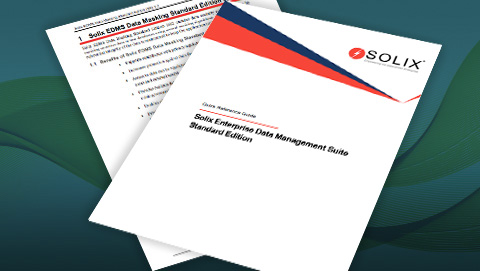Data Protection Act (DPA 2018)
What is DPA 2018?
The Data Protection Act 2018 (DPA 2018) is pivotal legislation in the United Kingdom, aligning with GDPR principles to safeguard personal data. It emphasizes transparency, individual control, and robust security measures for personal data processing and outlines key components such as data protection principles, individual rights, stronger security, and enforcement measures.
Overview of DPA 2018
- Law: Data Protection Act 2018
- Region: United Kingdom
- Signed On: 23-05-2018
- Industry: Any organization processing personal data, regardless of the specific industry sector
Personal Data Under The DPA 2018
If a piece of information can be used, directly or indirectly, to identify a particular individual, it likely falls under the scope of personal data protected by the DPA 2018.
- Direct identifiers: Name, address, phone number, email address, ID numbers
- Indirect identifiers: Information that can identify a person when combined with other pieces. This could include location data, IP address, browsing history (tied to an individual), and physical attributes.
- Biometric data: Data that can be used for unique identification, like fingerprints, DNA, or facial recognition data.
- Data revealing personal characteristics: Information about your race, ethnicity, religion, political opinions, sexual orientation, health data, and even your economic or social situation.
Data Protection Principle
- Lawfulness and transparency: Processing must be legal, fair, and transparent to individuals.
- Purpose limitation: Data must be collected and used only for specified, explicit, and legitimate purposes.
- Data minimization: Processing must be limited to what is necessary for the intended purpose.
- Accuracy and accountability: Data must be accurate and up-to-date, and controllers must be accountable for its protection.
- Storage limitation: Data must be kept only for the minimum period necessary.
- Integrity and confidentiality: Implement appropriate technical and organizational measures to ensure data security.
Rights Under DPA 2018
- Right to access personal data
- Right to rectification (correction of inaccurate data)
- Right to erasure (data deletion under certain circumstances)
- Right to restrict processing
- Right to data portability (requesting data in a transferable format)
- Right to object to automated decision-making
Who Needs To Comply DPA 2018?
The UK Data Protection Act 2018 (DPA 2018) applies broadly across all sectors, with minimal exceptions. It does not target specific industries but rather focuses on the specific actions of processing personal data. This means any organization, regardless of its sector, must comply with the DPA 2018 if they:
Organizations operating within the UK:
- Businesses of all sizes: This includes private companies, sole traders, and public sector organizations like government agencies and universities.
- Non-profit organizations: Charities, community groups, and other non-profit entities handling personal data must comply.
Organizations outside the UK:
- Companies offering goods or services to UK residents: Even if your organization isn’t physically located in the UK if you target UK residents with your offerings, you must adhere to DPA 2018.
- Companies monitoring the behavior of UK residents online: This includes tracking activity on websites, social media platforms, or mobile apps used by UK residents.
Individuals:
- While the Act primarily targets organizations, specific provisions apply to individuals processing personal data for non-domestic purposes or in a professional capacity outside their primary job role.
Exceptions
The DPA 2018, despite its rigorous regulatory framework, provides exemptions and clarifications tailored to specific contexts, including considerations for national security law, enforcement legal proceedings, journalism, artistic expression, and personal activities conducted outside any professional or commercial scope.
Regulatory Penalties
DPA 2018 empowers the Information Commissioner’s Office (ICO) to impose substantial fines upon non-compliance. These fines can reach a staggering £17.5 million, or 4% of an organization’s global annual turnover, whichever is higher. This signifies the Act’s seriousness in holding organizations accountable for protecting personal data.
In conclusion, the Data Protection Act 2018 is pivotal in upholding individuals’ rights and imposing responsibilities on organizations to adhere to stringent data protection principles. Compliance with this legislation is crucial for fostering trust, mitigating risks, and preserving personal data integrity. Implementing robust data protection measures, like data masking solutions, is essential for navigating regulatory complexities and safeguarding against potential breaches.
FAQ
What if I only process limited personal data, Am I exempt?
The DPA 2011 doesn’t have a strict data volume exemption. Depending on the data’s sensitivity and use, processing even a small amount of personal data can bring you under the DPA’s scope.
How does the DPA 2018 impact government organizations and public authorities?
The DPA 2018 applies equally to government organizations and public authorities. It holds them accountable for processing personal data in compliance with data protection principles and ensures transparency and fairness in governmental data handling.
Does DPA 2108 provide any exemptions for government bodies?
If a public authority holds personal data that isn’t organized electronically (think handwritten notes in a file), the DPA 2018 might not apply.
How does the DPA 2018 address children’s data protection?
The DPA 2018 includes specific provisions for protecting children’s data, requiring organizations to obtain parental consent for processing children’s data in certain circumstances and implementing measures to safeguard children’s privacy rights online.





